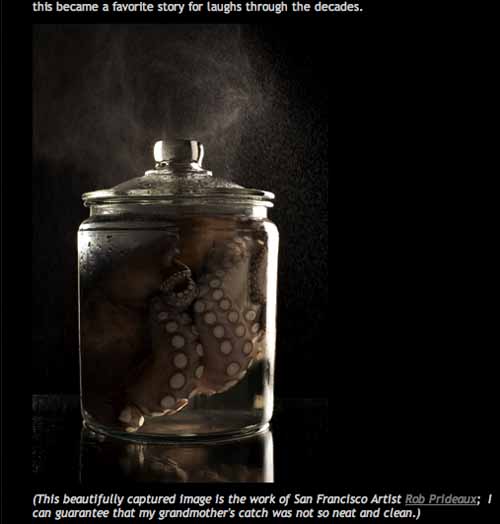This one was much more interesting than the others:
Dear XXX XXX,
I'm writing you because you're listed as the Admin contact on the whois record for XXX. I couldn't find any email addresses on the site itself, but I've submitted the following via the online contact form there. If you don't handle licensing arrangements, please, put me in touch with the person who handles them.
I found the "XXX" post, by XXX XXX, on your website during a routine search for my images on the web. My image, "New Valentines - 01" appears on the second page of the post.
I'm flattered that you are using one of my images to illustrate your the post, I think it works well to illustrate the concept, and I'm grateful for the link back. However, per the "Advertise" section of the site, you are generating substantial profit from the page, and therefore, to some degree, from the use of my image.
As you may already realize, I earn my living through my imagery, and unauthorized usage of my images interferes with that, and is also illegal per the 1976 Copyright Act (copyright.gov).
I will be happy to negotiate a reasonable fee, say $XXXX for three years online usage, for continued use of my image on your website. If we can't come to an agreement, you must remove my images from all of your pages.
Thank you for your attention to this matter,
Rob Prideaux
Hello Rob! Your image is removed now.
But you should understand that images don't make any profit at all there. You had there free advertising for your talent to make even more from your images. And it was for free ;)
Good luck with your great photos!
Sincerely, XXX
Hi XXX,
Thanks for your prompt action. I'm sorry we can't come to a mutually beneficial licensing arrangment, especially since at $2000 or $1500 per banner ad per week, XXX stands to be pretty profitable. If you should find another of my images that fits your needs, please don't hesitate to contact me regarding licensing.
All the best to you,
Rob
Good ;)
But there is price for your text links too - and you don't pay that. It's kind of good deal for you as photograph - free lifelong ad on site where it cost 2k per week - isn't it?
The is no problem for me to remove your image but for you it looks like a good deal.
Anyway you know better what is works better for your business.
I hope this model will give you more options to create even better pictures.
Btw, your inquiry was most professional - you really sounds much more better than your collegues - that's fact ;)
Have a nice day Rob!
---------------------------------------------------
English is not her first language, but you get the gist. The things that jump out at me about this exchange are:
She states that "images don't make any profit" there, which I guess means that they don't purchase the images they use. I'll suggest that the images that they use there help them to make a profit, however, since they increase the appeal of the site, and therefore draw more users.
She points out that I had "free advertising". Never mind that my target market and her audience probably don't overlap at all, it's still a good angle for her to try.
And when I point out the revenue the site seems to be earning, she suggests that makes the free advertising even more valuable to me. Ha, nervy.
So, the question was - why bother? And the longer answer is- because it keeps me in shape. There is a comprehensive effect when I go through this process. I get practice at negotiation, at structuring licensing proposals, at pursuing my rights, at valuing my photographs.
And that last part is pretty key. Much like the proverbial broken window in the warehouse, maintaining my rights to one of my images helps maintain my rights to all my images.




